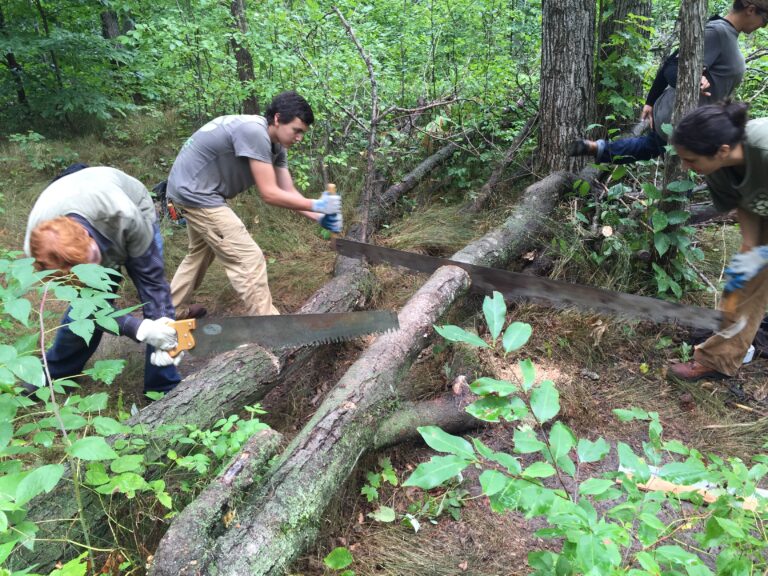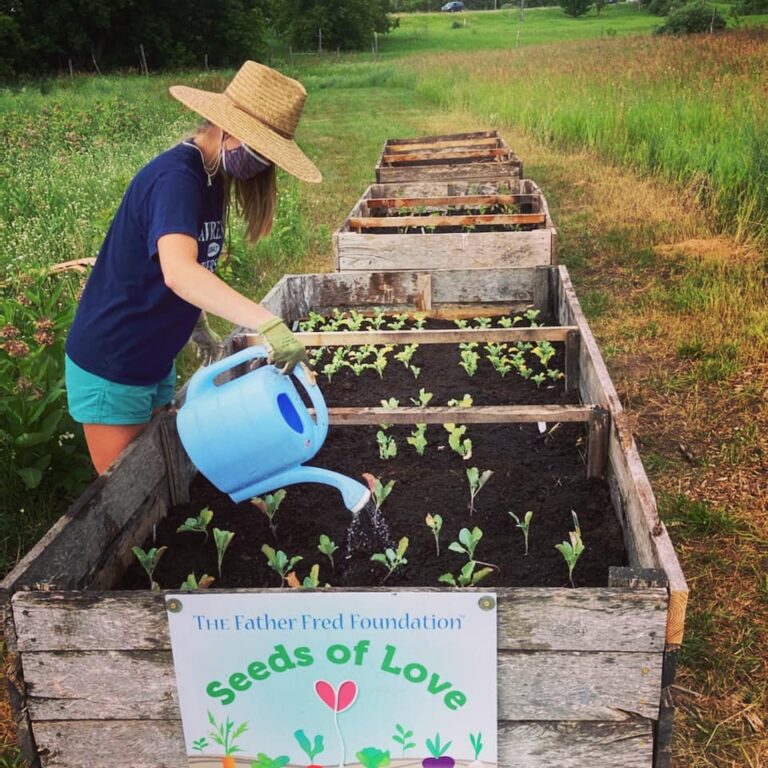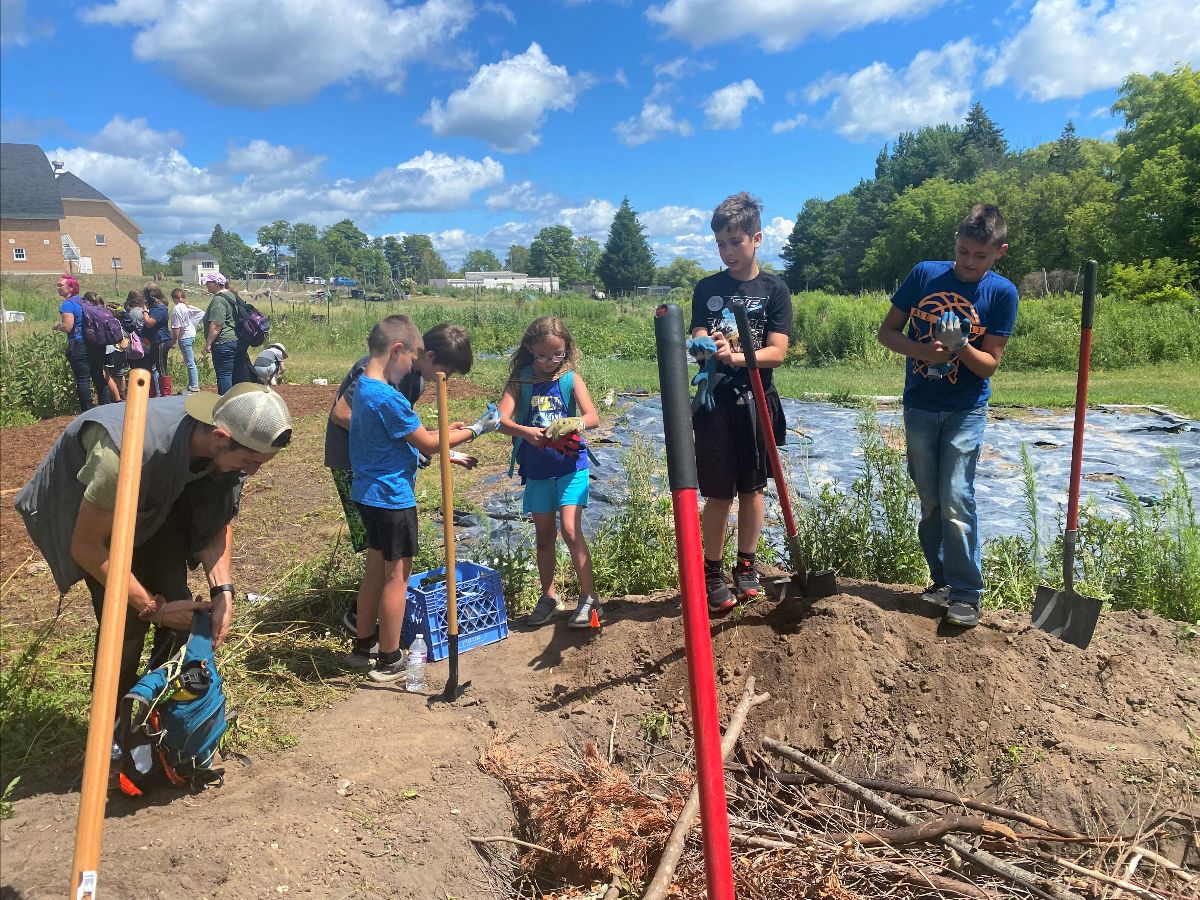
Above: At the SEEDS EcoLearning Center at Historic Barns Park, EcoCorps members teach EcoSchool students how use the traditional Hügelkultur method of building a garden bed from logs and plant debris that will continue to rot and compost.
Preventing food waste is the most environmentally impactful waste management strategy; it is also an incredibly accessible solution. Whether you are a household or a local business, you can take action. Did you know that:
- We throw away 50% of all food grown – and it takes a lot of energy and petroleum products to grow that food.
- In landfills, food waste and other organic materials generate methane, which is an extremely potent greenhouse gas.
- Composting transforms what was going to become methane into a value-added product that brings life, nutrients, and carbon back into our soils.
- Compost is not only good for gardens, it can be used to prevent erosion and can also improve water quality.
SEEDS is working to reduce food and organic wastes going to landfills region-wide and targeting outreach and education for all ages. We’re teaching students as young as kindergartners why composting is important and how to do it. We’re training young adults on compost management and regenerative agriculture. We’re actively working with community leaders to expand and improve compost services in the region.
“One of the beautiful things about organic waste is that any one of us can choose to do something tangible about it without waiting to change a company policy, pass a law, or even ask for permission. All we have to do is get more intentional about reducing our waste and diverting the rest. Are you in?” – Executive Director, Sarna Salzman
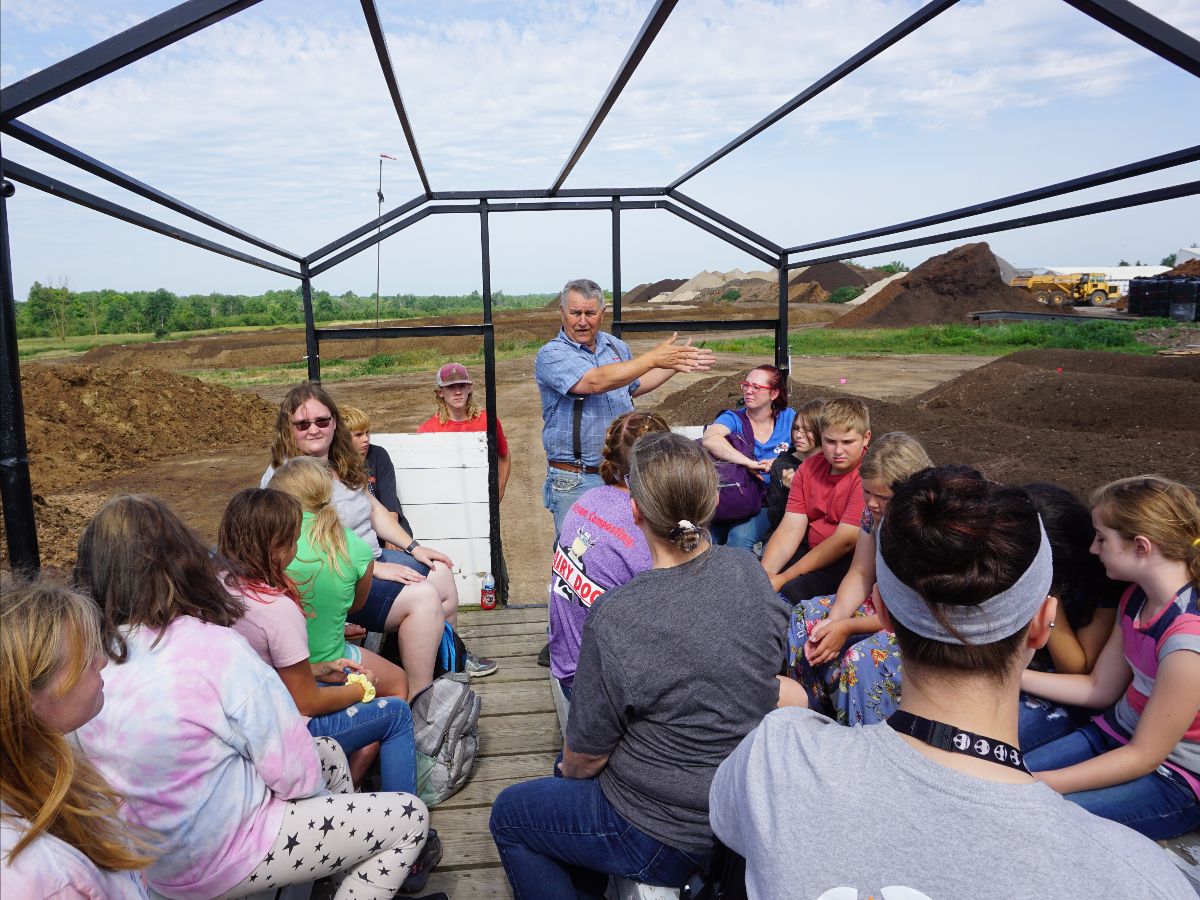
Above: EcoSchool at Marion Elementary School visited Morgan Composting on a summer field trip. There, they learned directly from business owner, Brad Morgan, about composting on an industrial scale.
Above: EcoCorps has been composting at the SEEDS Farm at Historic Barns Park for over a decade and using the finished product to amend the soils. Last year we had fun testing the improved microbial activity in various locations by burying cotton underwear and seeing how much our little microbial friends ate. You can do the challenge yourself and with your family here – it’s a great STEM activity!
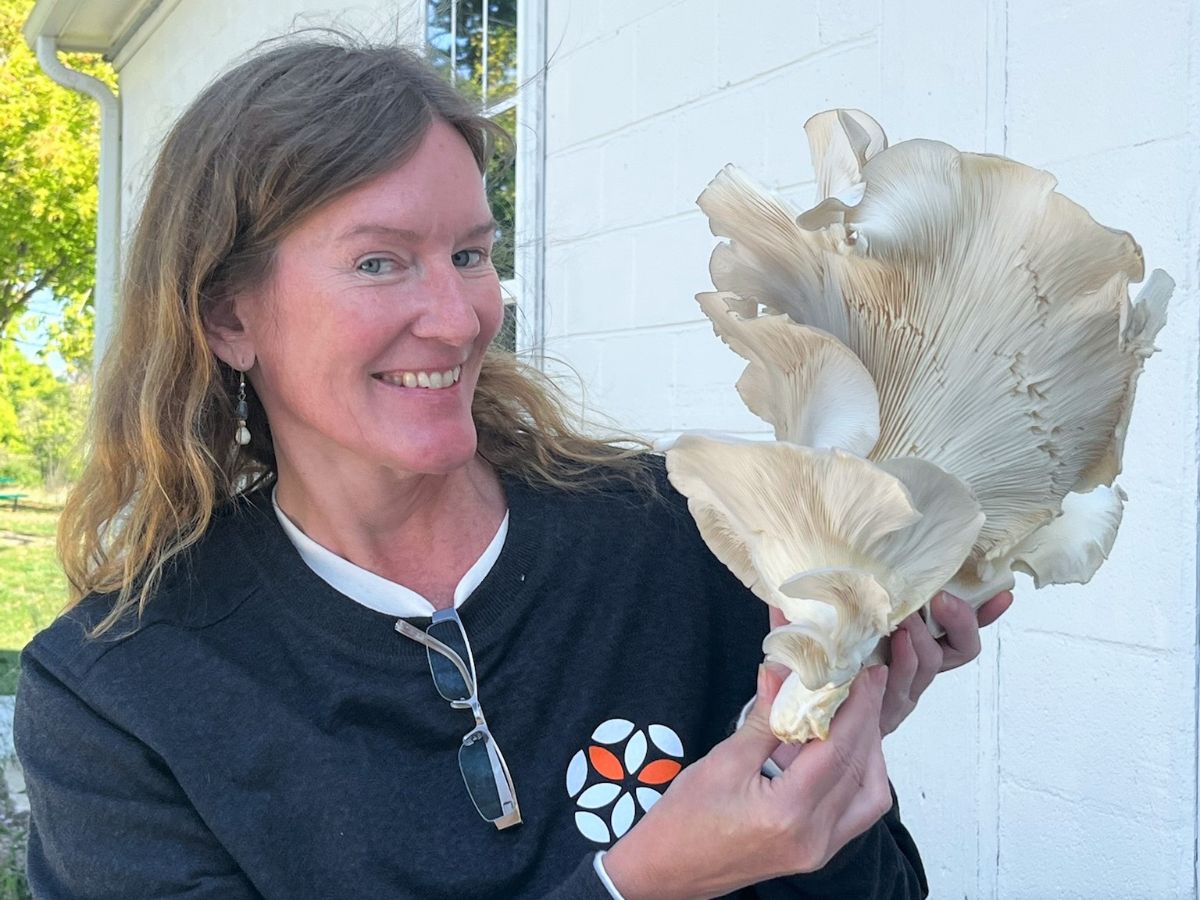
Above: It takes a lot of partners to make a systemic change. SEEDS has partnered with Grand Traverse Mushrooms who is generously donating spent mycelial blocks to boost our composting and soil building projects at the SEEDS Farm at Historic Barns Park – and sometimes we find a fresh culinary mushroom worth eating!

